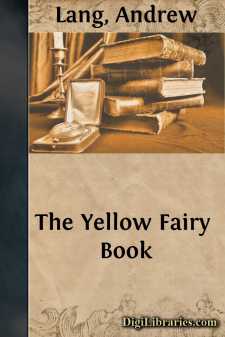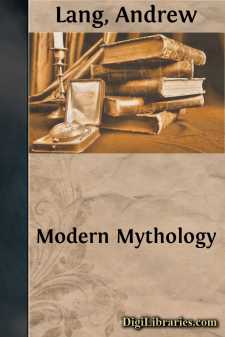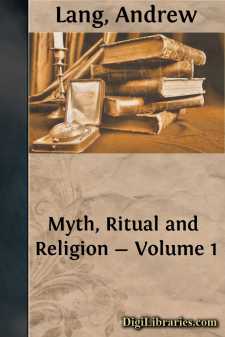Categories
- Antiques & Collectibles 13
- Architecture 36
- Art 48
- Bibles 22
- Biography & Autobiography 815
- Body, Mind & Spirit 144
- Business & Economics 28
- Children's Books 18
- Children's Fiction 14
- Computers 4
- Cooking 94
- Crafts & Hobbies 4
- Drama 346
- Education 58
- Family & Relationships 59
- Fiction 11834
- Games 19
- Gardening 17
- Health & Fitness 34
- History 1378
- House & Home 1
- Humor 147
- Juvenile Fiction 1873
- Juvenile Nonfiction 202
- Language Arts & Disciplines 89
- Law 16
- Literary Collections 686
- Literary Criticism 179
- Mathematics 13
- Medical 41
- Music 40
- Nature 179
- Non-Classifiable 1768
- Performing Arts 7
- Periodicals 1453
- Philosophy 65
- Photography 2
- Poetry 896
- Political Science 203
- Psychology 44
- Reference 154
- Religion 515
- Science 126
- Self-Help 85
- Social Science 83
- Sports & Recreation 34
- Study Aids 3
- Technology & Engineering 59
- Transportation 23
- Travel 463
- True Crime 29
Our website is made possible by displaying online advertisements to our visitors.
Please consider supporting us by disabling your ad blocker.
The Disentanglers
by: Andrew Lang
Description:
Excerpt
I. THE GREAT IDEA
The scene was a dusky shabby little room in Ryder Street. To such caves many repair whose days are passed, and whose food is consumed, in the clubs of the adjacent thoroughfare of cooperative palaces, Pall Mall. The furniture was battered and dingy; the sofa on which Logan sprawled had a certain historic interest: it was covered with cloth of horsehair, now seldom found by the amateur. A bookcase with glass doors held a crowd of books to which the amateur would at once have flown. They were in ‘boards’ of faded blue, and the paper labels bore alluring names: they were all First Editions of the most desirable kind. The bottles in the liqueur case were antique; a coat of arms, not undistinguished, was in relief on the silver stoppers. But the liquors in the flasks were humble and conventional. Merton, the tenant of the rooms, was in a Zingari cricketing coat; he occupied the arm-chair, while Logan, in evening dress, maintained a difficult equilibrium on the slippery sofa. Both men were of an age between twenty-five and twenty-nine, both were pleasant to the eye. Merton was, if anything, under the middle height: fair, slim, and active. As a freshman he had coxed his College Eight, later he rowed Bow in that vessel. He had won the Hurdles, but been beaten by his Cambridge opponent; he had taken a fair second in Greats, was believed to have been ‘runner up’ for the Newdigate prize poem, and might have won other laurels, but that he was found to do the female parts very fairly in the dramatic performances of the University, a thing irreconcilable with study. His father was a rural dean. Merton’s most obvious vice was a thirst for general information. ‘I know it is awfully bad form to know anything,’ he had been heard to say, ‘but everyone has his failings, and mine is occasionally useful.’
Logan was tall, dark, athletic and indolent. He was, in a way, the last of an historic Scottish family, and rather fond of discoursing on the ancestral traditions. But any satisfaction that he derived from them was, so far, all that his birth had won for him. His little patrimony had taken to itself wings. Merton was in no better case. Both, as they sat together, were gloomily discussing their prospects.
In the penumbra of smoke, and the malignant light of an ill trimmed lamp, the Great Idea was to be evolved. What consequences hung on the Great Idea! The peace of families insured, at a trifling premium. Innocence rescued. The defeat of the subtlest criminal designers: undreamed of benefits to natural science! But I anticipate. We return to the conversation in the Ryder Street den.
‘It is a case of emigration or the workhouse,’ said Logan.
‘Emigration! What can you or I do in the Colonies? They provide even their own ushers. My only available assets, a little Greek and less Latin, are drugs in the Melbourne market,’ answered Merton; ‘they breed their own dominies. Protection!’
‘In America they might pay for lessons in the English accent . . . ’ said Logan.
‘But not,’ said Merton, ‘in the Scotch, which is yours; oh distant cousin of a marquis! Consequently by rich American lady pupils “you are not one to be desired.”’
‘Tommy, you are impertinent,’ said Logan. ‘Oh, hang it, where is there an opening, a demand, for the broken, the stoney broke? A man cannot live by casual paragraphs alone.’
‘And these generally reckoned “too high-toned for our readers,”’ said Merton.
‘If I could get the secretaryship of a golf club!’ Logan sighed.
‘If you could get the Chancellorship of the Exchequer! I reckon that there are two million applicants for secretaryships of golf clubs.’
‘Or a land agency,’ Logan murmured.
‘Oh, be practical!’ cried Merton. ‘Be inventive! Be modern! Be up to date! Think of something new! Think of a felt want, as the Covenanting divine calls it: a real public need, hitherto but dimly present, and quite a demand without a supply.’
‘But that means thousands in advertisements,’ said Logan, ‘even if we ran a hair-restorer. The ground bait is too expensive. I say, I once knew a fellow who ground-baited for salmon with potted shrimps.’
‘Make a paragraph on him then,’ said Merton....












